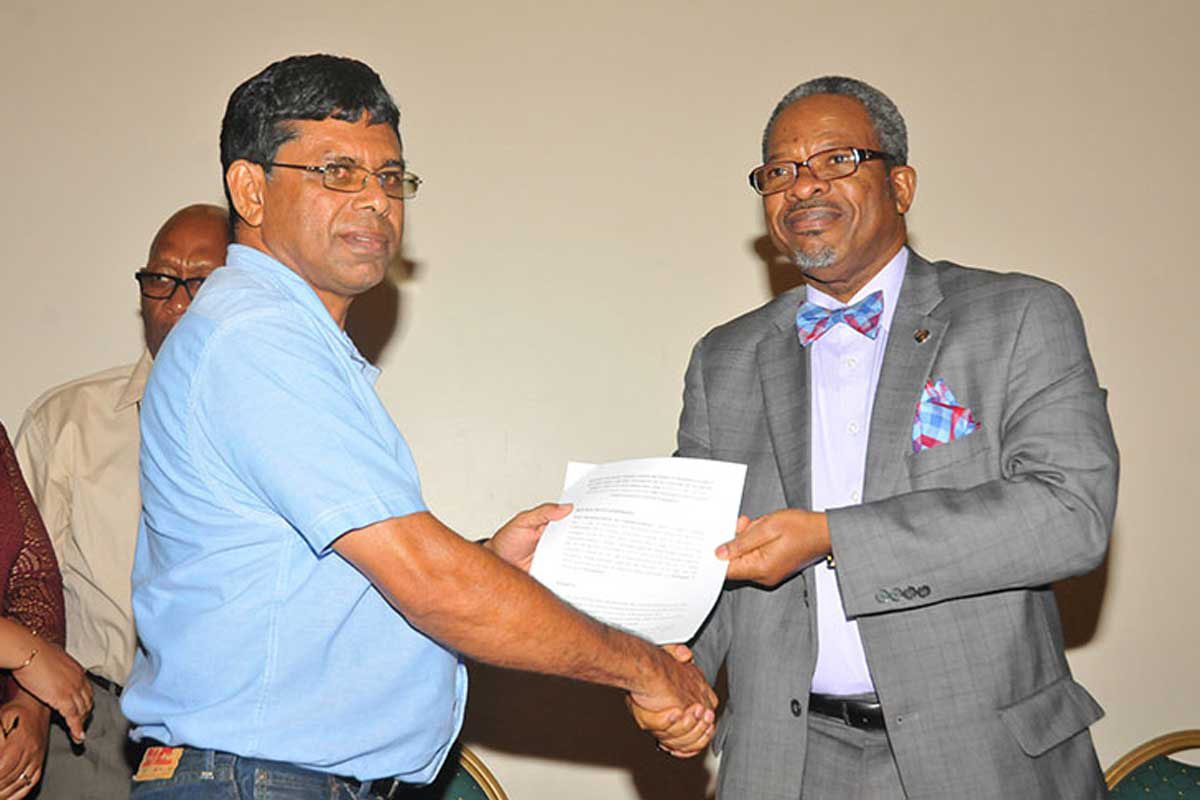Almost two years after the signing in December 2017 of a memorandum of understanding between the Berbice rice giants, Nand Persaud & Company and the University of Guyana for the creation of a $40 million Soil Testing Laboratory at the university’s Tain campus, the company’s Managing Director Mahindra Persaud has signalled that the wait for the completion of the facility is almost over.
During a recent interview with Stabroek Business, Persaud disclosed that the facility, which is set to be a game-changer in terms of enhancing the capability of farmers to make critical soil-related decisions is expected to be opened later this month.
According to the Berbice businessman, the opening of the new laboratory could result in an increase in farming yield by as much as 15 per cent given the advanced soil testing facilities that will be available at their disposal once the facility is up and running. “Once farmers are aware what nutrients the soil needs they will be able to apply those appropriately,” Persaud was quoted as saying.
The new laboratory will remove what, in many instances, is presently the random approach to the application of fertiliser, Persaud explained. The laboratory will be staffed by an agronomist from the Nand Persaud Group as well as other staff from the company and from the University of Guyana. Sherina Persaud, herself an agronomist and the daughter of the company’s CEO is also expected to join the staff of the laboratory.
University research students will have free access to the facility while both rice farmers and cash crop farmers will have access at a nominal cost. Funds secured from the payments made for the use of the testing facility will go towards the operating costs of the laboratory and to the university for such projects as the administration of the institution deems fit for funding.
Farmers wishing to access the facility will be expected to submit samples of soil to the laboratory from different areas of their farms. The soil will be tested and evaluative reports sent to the farmers. Persaud is optimistic that the advent of the soil testing facility could positively alter the farming landscape of the region within two years. The rice magnate is of the view that the laboratory could help eliminate the culture of indiscriminate application of fertiliser, a circumstance which he opines is due to lack of knowledge.
Down the road, Persaud anticipates the possible emergence of a courier service that will transport soils to the Tain testing facility from various parts of Guyana. The test reports can be sent out via email to facilitate those with access to the internet.
In addition, Persaud foresees that the opening of the laboratory will accelerate arrangements for planned soil testing collaboration with India since that country has already indicated its willingness to support local soil-testing requirements. Persaud indicated that farmers in Suriname have been monitoring the progress of the laboratory as it nears its completion and have been making frequent inquiries about a time line for its opening for business.
The managing director told Stabroek Business that the company will be lobbying local commercial banks to press for soil testing to become a requirement for farmers wishing access to loans since this could be a key criteria for determining the potential profitability of farming projects.










